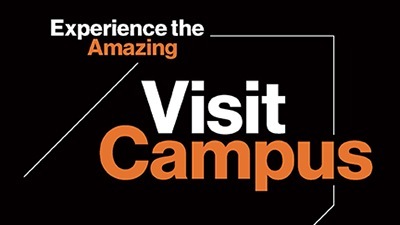Research at NTID
The National Technical Institute for the Deaf sponsors and encourages research designed to enhance the lives of deaf and hard-of-hearing people. Faculty at NTID work either on discipline-based research within their own academic departments, or come together in research centers and or labs to work on strategic research projects. Students are encouraged to actively partner with faculty on research projects of mutual interest.
Research and scholarship are organized into centers focusing on four strategic areas of proven success that will continue to be the focus of the future—teaching and learning; communication; technology, access and support services; and employment and adaptability to social changes and the global workplace.
Research Centers
The NTID Center on Access Technology (CAT) is charged with investigating, evaluating and reporting on the most effective and efficient use of access technologies, and with training individuals in their use in order to accelerate the widespread implementation of best practices within deaf education at the postsecondary level.
The mission of the NTID Research Center on Culture and Language (CCL) is to promote access and education through research, development, and mentorship related to cultural and linguistic characteristics and processes of deaf and hard of hearing communities.
The primary mission of the Research Center for Teaching and Learning (RCfTL) is to create a setting in which diverse teams of faculty and students conduct research that will improve deaf education, expose students to research practices and prepare a future generation of educational researchers and scholars. A secondary mission is to facilitate the development of collaborative partnerships between RIT/NTID faculty and faculty in the other colleges of RIT who are focused on the education of deaf and hard-of-hearing students.
The Sensory, Perceptual, and Cognitive Ecology (SPaCE) Center is an active research center funded by grants from NIH and NSF. We study the sensory, perceptual and cognitive abilities of deaf individuals and how deaf people create deaf-friendly environments. Our guiding philosophy is that deaf individuals are not just passively transformed by their deafness; they also actively engage with and shape their environments.
The mission of the Center for International Educational Outreach (CIEO) at NTID is to expend education opportunities for Deaf communities outside of the United States by collaborating with Deaf leaders and higher institutions of other countries to build center of excellence in Deaf education. CIEO works to expend research and collaboration opportunities between NTID and international institutions for the Deaf.
DeafTEC
DeafTEC: Technological Education Center for Deaf and Hard-of-Hearing Students is a National Science Foundation Advanced Technological Education Center of Excellence, and serves as a resource for high schools and community colleges that educate deaf and hard-of-hearing students in STEM-related (science, technology, engineering, and math) programs, and for employers hiring deaf and hard-of-hearing individuals. DeafTEC also partners with high schools, community colleges and industry to improve access to technological education and employment for deaf and hard-of-hearing individuals.
Deaf Health Care and Biomedical Science Hub (Deaf Hub)
The Deaf Hub aims to improve the healthcare training experience through mentoring students and professionals, to increase universal access in the health system by working with the community of health professionals, and to strive for better health of deaf and hard-of-hearing people informed by research. The Deaf Hub works towards the long-term goal of increasing the number of deaf and hard-of-hearing people entering health care and biomedical science careers.
Research Labs
The Collaboratory on Economic, Demographic and Policy Studies seeks to describe the demographic and economic conditions of the deaf and hard-of-hearing population in the U.S., with emphasis on the impact education has on improving these conditions.
The deaf 𝑥 laboratory conducts research on brain reorganization in the face of altered sensory input, asking what happens to the brain areas and neural pathways associated with visual and multi-sensory processing when auditory input is missing. While housed in NTID, psychology majors have the opportunity to participate as research assistants on projects in deaf x laboratory.
Student Research Resources
Funds are available to support student researchers, with the goal of increasing the number of NTID-supported students who do research with faculty members at NTID. Students who are conducting research under externally funded projects are asked to use those funds before applying for the NTID-funded opportunities.




